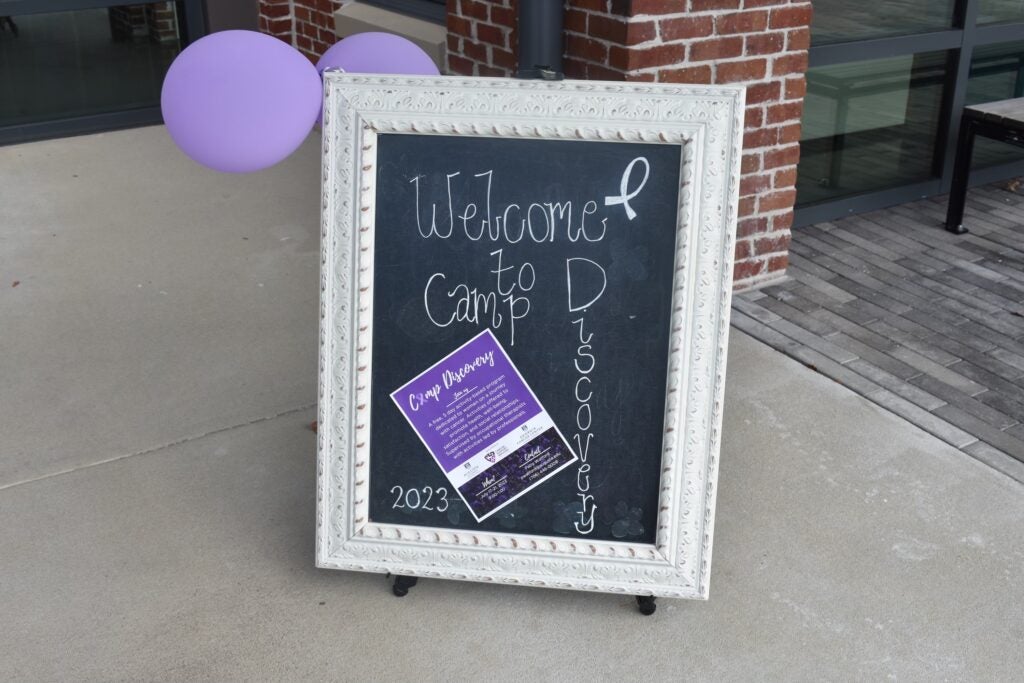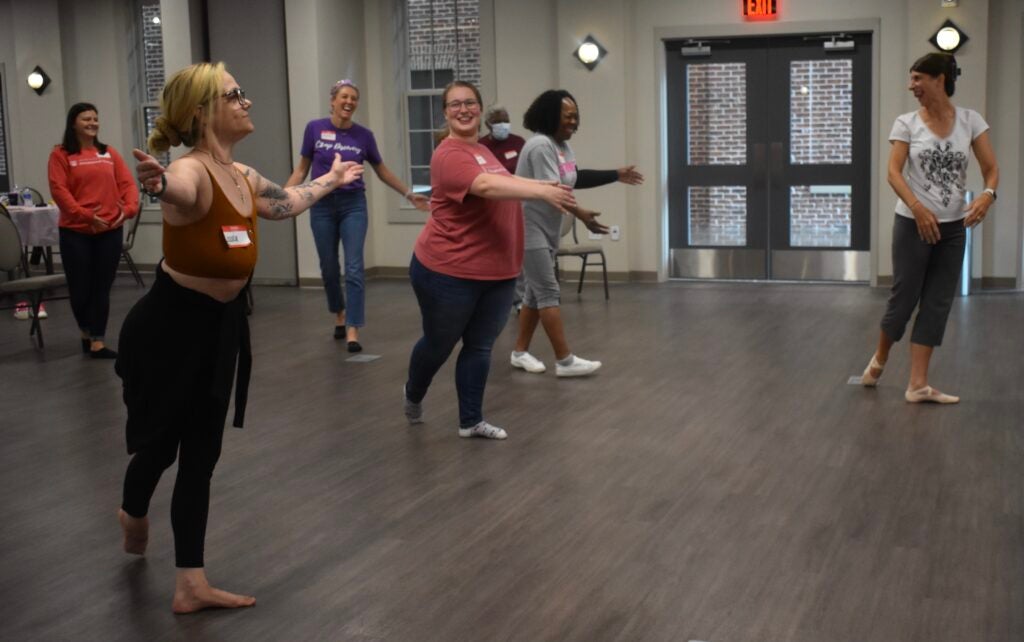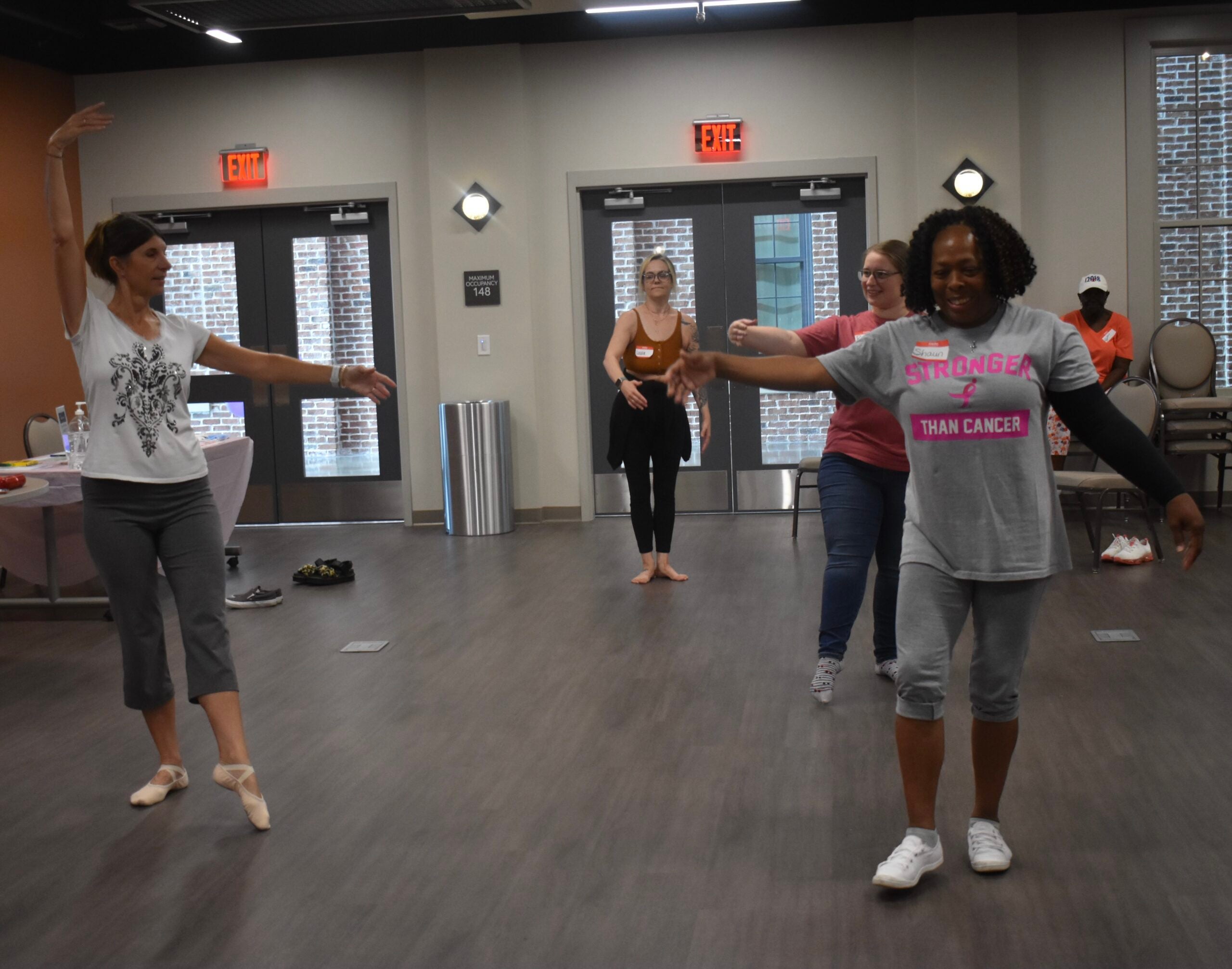Supervised by occupational therapists and students enrolled in Augusta University’s Occupational Therapy program, Camp Discovery invited women surviving cancer to build community relationships with peers as they participated in physical, spiritual and creative activities together.
In its very first year, AU’s Camp Discovery offered a free, one-week experience dedicated t to showing women the power of promoting one’s overall health through a variety of exercises and interests.
Throughout the week of July 17 to 21, participants fueled possible new creative outlets by learning about gardening, cooking, music, flower arranging and even gift wrapping, as well as the importance of establishing a connection to one’s mind and body through journaling, mediation and other relaxation techniques.
Dance and yoga were also held by professionals during the week to emphasize the necessity of keeping fit in order to push through treatments.
“We know that, for people who have cancer, one of the long term consequences of that is there is often a decrease in their activity level,” said Pam Kearney, co-organizer of camp and the Department Chair of AU’s Occupational Therapy program. “That affects their quality of life, and it can help cause mental health with stress, fear and anxiety depression.”

Kearney also said Camp Discovery gave women the opportunity to meet others who understand firsthand the difficulty of navigating one’s treatments and the emotional trauma many patients are often dealt.
“We have women who are in active treatment, or who have finished treatment and are maybe now in remission, and here they’re able to share their experiences and their journey,” she said. “We have had a wide variety of activities that gives the women a chance to try something different, and maybe even find something that they’re really interested in and want to continue doing that.”
On the first day of camp, Kearney said an occupational therapist taught campers how to paint using watercolors, and this encouraged one camper to pursue the activity as a new hobby after camp was over.
With hip-hop, ballet and chair fitness courses, attendees of all different physical capabilities have been accommodated and have bonded over new memories made.
“We’ve some sort of movement activity everyday along with one or two leisure activities,” said Kearney. “Today, we’re going to be partnering with Locally Grown to create window box herb gardens, and then we’re making pesto pasta for lunch.”
Since cancer often causes patients to limit their participation in social settings, due to feeling ill or symptoms of chemotherapy, Kearney said Camp Discovery creates new opportunities for friendship to provide campers with a gateway into feeling connected to their community.

“I think camp is amazing. I think the fact that [occupational therapists] took time out of their week to do this for people is amazing,” said camper Laura Orange. “I recently just started chemotherapy, so it’s really given me a reason to get up in the morning and stay active. It’s been a big help for me.”
After spending two years in Augusta and moving from Illinois to do so, Orange still considers herself fairly new to the community, and as such is navigating cancer without her family.
“My support group is all at home in Illinois, so finding support within the community is amazing,” said Orange. “It makes me want to cry thinking about it because the workers have just been so great to me. I’ve met new friends here that will carry on far after camp.”
As an incurable plant killer, Orange said her favorite activity would be herb gardening, because she wanted tips on how to not kill her new home addition, and as she pursues her dream of creating a home garden.
According to Kearney, Camp Discovery also teaches student occupational therapists how to effectively apply their knowledge in a non-clinical setting – a necessary ability for the career as health services can be offered in a variety of environments.
“OT practices in a wide range of settings, from medical model settings to school based or community based practices,” she said. “So, as an entry level program, we have a responsibility to ensure that these students are prepared.”
As the attending women bonded over charcuterie boards and intro ballet steps, several could be found laughing and having fun, despite their health struggles.
“It’s not what I expected – it’s better,” said camper Elizabeth Mitchell-Grant. “I didn’t even know about the camp; my doctors told me about it, and it’s fun. It’s educational and very interesting to be with other people like yourself. I would like to come back next year. I really would.”











